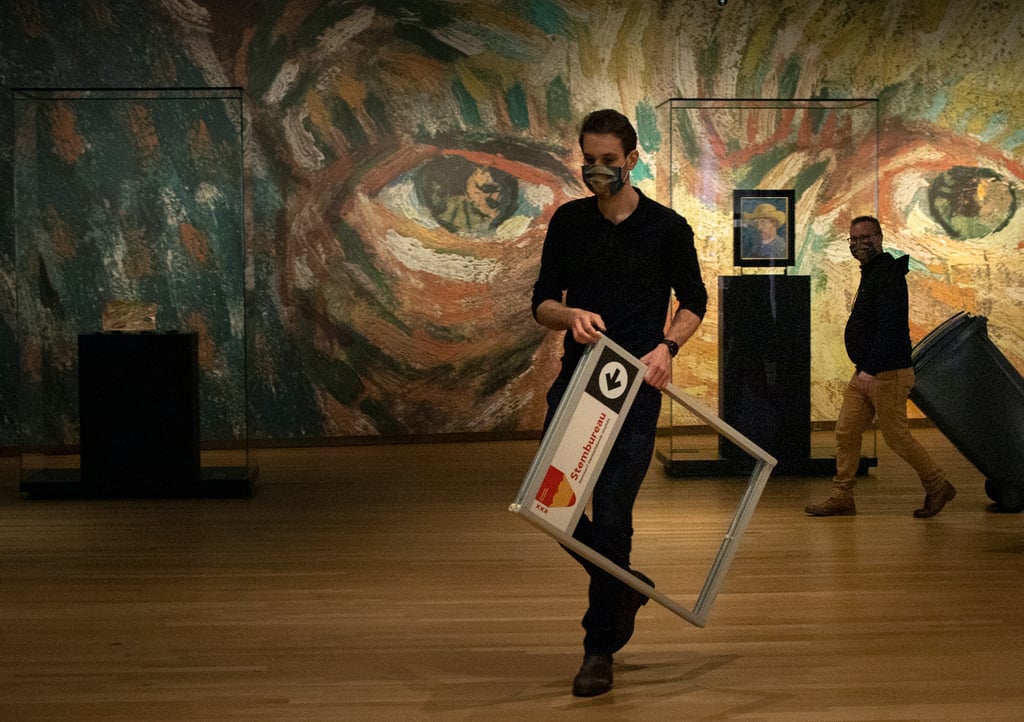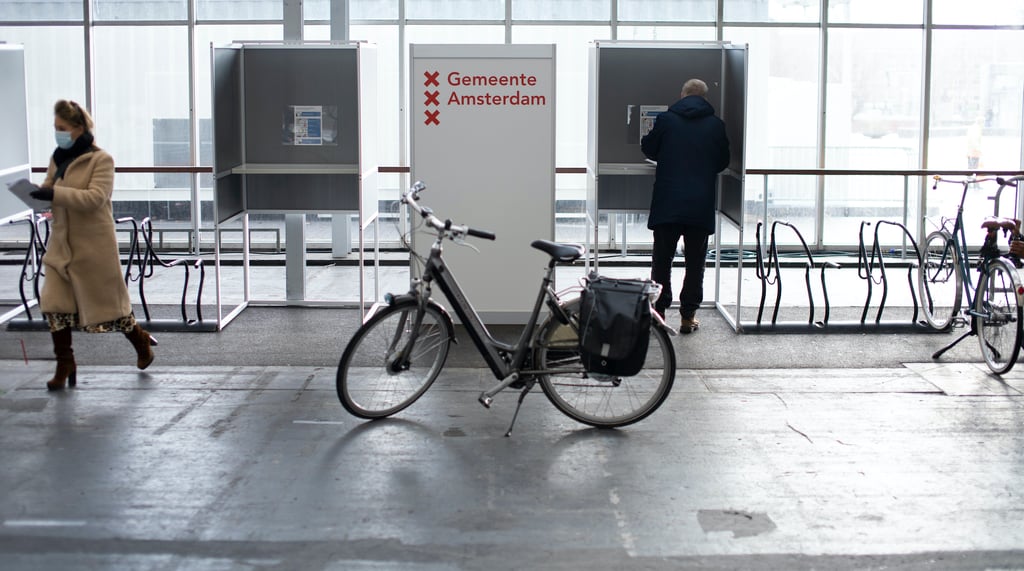THE HAGUE (CN) — The party of center-right leader Mark Rutte claimed victory late Wednesday evening, after three days of voting while the Netherlands weathers still-rising cases of Covid-19.
Rutte’s VVD, short for the People’s Party for Freedom and Democracy, took home 22% of the vote, which equates to 35 seats in the country's 150-seat parliament. But the biggest surprise of the evening was a surge in support for the center-left D66 party, which jumped five seats, for a total of 24.
A photo of party leader Sigrid Kaag jumping on a table to celebrate as votes were being tallied was the cover story for most Dutch newspapers. "I almost have tears in my eyes," Kaag told reporters on Thursday morning. “It makes me almost embarrassed.”
The election was also a win for far-right parties. The normally braggadocious leader of Forum for Democracy (FvD) Thierry Baudet, whose party got a six-seat boost to eight in total, was noticeably absent from social media, citing exhaustion. Baudet was the only candidate who held in-person rallies in the run-up to the election, often in violation of the country’s strict Covid-19 measures.
The FvD had a near meltdown in November over anti-Semitic group chats, and a number of prominent members splitting off to form their own party, JA21, or Yes 21, which also took home four. The PVV, the party of the more internationally known Geert Wilders, lost three seats, leaving them with 17 and dropping them from the second largest party to the third. That leaves the anti-EU, anti-immigration bloc as a whole with 29 seats, or about 18.3% of the vote.
Traditionally left parties in the country took a major hit. The Socialist Party lost five seats bringing them down to nine, the Green Left lost half of their seats, leaving them with seven, and while the Labor party stayed the same with nine seats, they still haven’t recovered from their loss of 29 seats during elections four years ago. Green Left party leader Jesse Klaver described the results as “painful” but has said he won’t stand down as party leader. “It is ultimately up to the caucus but, if you ask me, I will continue,” he told reporters outside of parliament on Thursday morning.
About 90% of the votes had been tallied by Thursday afternoon, but the seat distribution won’t be finalized until next Wednesday when the Electoral Council divides up the so-called restzetels, the residual seats left when distributing proportion votes in a parliamentary system. Voting counting has also been slowed by coronavirus. The country operated some 9,200 polling stations, more than usual, in an effort to ensure social distancing was possible.
The Dutch are the first in Europe to hold national elections since the Covid-19 crisis began last year. Much of the increase for the FvD and JA21 is attributed to opposition to virus restrictions. The country experienced its worst rioting in 40 years the weekend a nationwide nightly stay-at-home order was implemented. Only people traveling for work or emergencies can be outside between 9 p.m. and 4:30 a.m.
Lisa van Ginneken became the first known transgender person to be elected to the Dutch parliament. The 48-year-old was a D66 candidate and said on Twitter: “Transgender people now have direct representation in our national politics. I am happy and grateful!” Anti-racism campaigner Sylvana Simons seems likely to eke out a single seat with her BIJ1 party (a play on the Dutch word bijeen, meaning “together”).
The leaders from a record 17 parties elected to the lower house have begun the process of forming a coalition, meeting on Thursday afternoon. Four years ago, the process took a record-breaking 209 days before Rutte managed to negotiate a four-party coalition with a one-seat majority. Thirty-seven parties stood in this election, a near-record, and the formation process is expected to be difficult. “I think everyone wants a new cabinet as quickly as possible,” Rutte said. “We’re in the middle of a very serious crisis and we’ll do our best.”
-

Dutch caretaker Prime Minster Mark Rutte leaves on his bicycle after casting his vote in a general election in The Hague, Wednesday,. (AP Photo/Peter Dejong) -

A ballot box is brought to a polling station inside the Van Gogh museum during a demonstration for the media in Amsterdam, Netherlands, Tuesday The Van Gogh museum is closed because of the pandemic. (AP Photo/Peter Dejong) -

A red voting pencil reminds people queueing to cast their ballots to respect the 1.5-meter social distance at a polling station in church De Duif in Amsterdam, Netherlands, Monday. (AP Photo/Peter Dejong) -

People cast their ballots in a ride through polling station for bicycles in Amsterdam, Netherlands, Monday,. (AP Photo/Peter Dejong)
Subscribe to Closing Arguments
Sign up for new weekly newsletter Closing Arguments to get the latest about ongoing trials, major litigation and hot cases and rulings in courthouses around the U.S. and the world.












